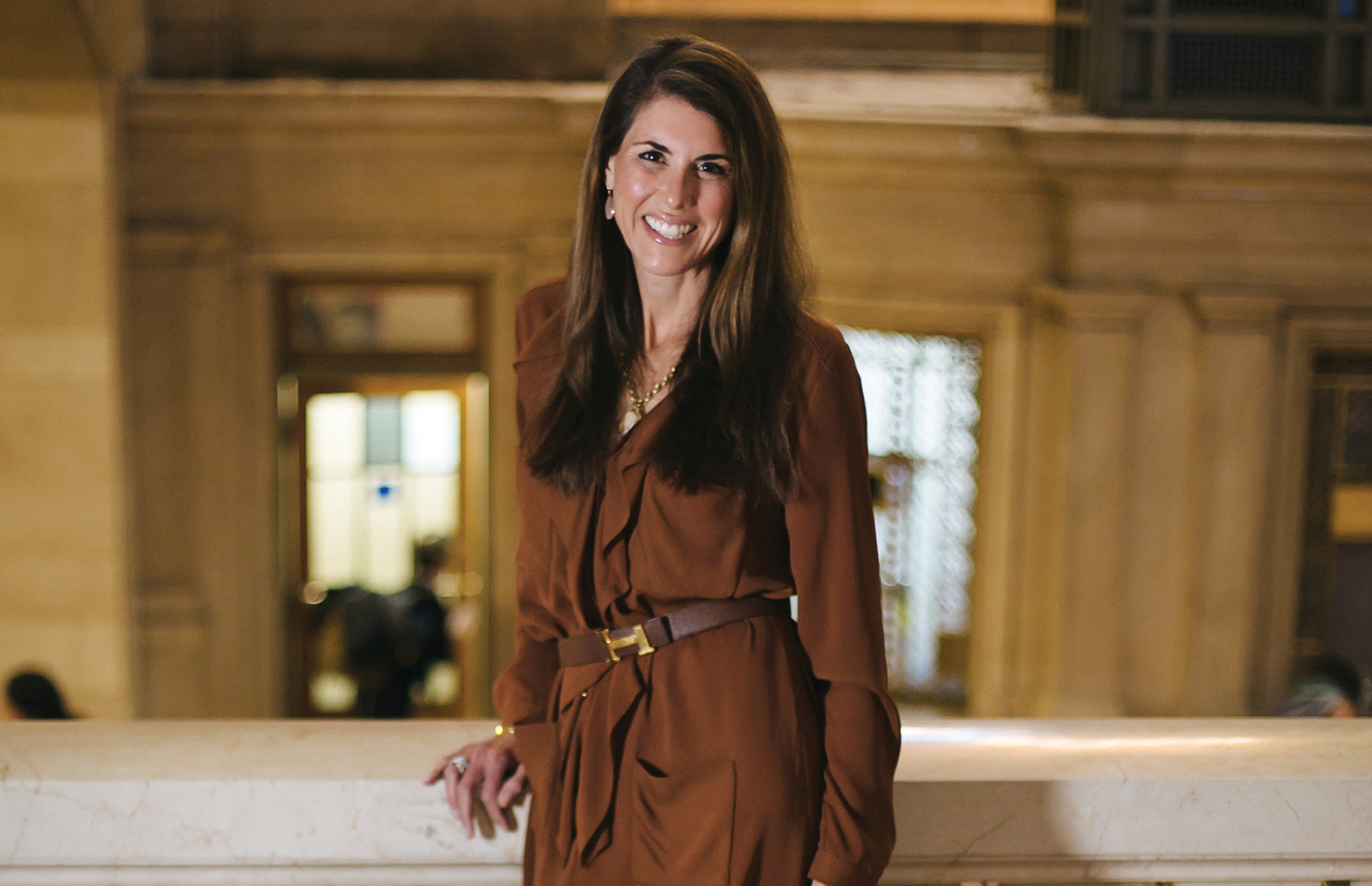As a physician and the founder of BFFL (Best Friends For Life) Co, Elizabeth Chabner Thompson, MD, MPH, 46, has proven herself as a Contessa of the medical world. Although physicians aren’t typically encouraged to become entrepreneurs, Elizabeth is an anomaly. What exactly led her to change the industry? Her success stems from passion, a wealth of innovative ideas and a couple of relevant, poignant life experiences.
Having always wanted to become a doctor, Elizabeth worked hard to turn her dreams into reality. She graduated from Yale, completed medical school at Johns Hopkins, underwent a residency at Harvard Hospitals and, lastly, received her Masters from Harvard. But it wasn’t until after watching her mother struggle with breast cancer and then later, when she herself underwent a double mastectomy and breast reconstruction, that Elizabeth became fully acquainted with the emotions that arise as a patient. Her perspective irreversibly shifted, and she set out to assist patients going through the processes of diagnosis, acceptance, treatment and recovery.
In 2011, Elizabeth’s passion gave way to BFFL Co, which has launched over a dozen products for recovering patients. Fast-forward to today, and BFFL has grown from a one-woman operation to an inspired staff of five. We were thrilled to chat with Elizabeth, and hear how she has dedicated her life to helping one best friend along at a time.
Her Starting Point
Many people find the transition between college and “real life” a bit daunting. Can you tell us about your journey between the two? What was your first job post-college?
I never really came up for air after college. I went directly to medical school, which I was eager to begin, but I did not realize how much pressure I kept myself under for so many years. My first real job was working as an “intern,” if you call that a job! I think I made $28,000 and worked more than 100 hours a week “awake”—that was long before the Bell Commission restricted medical intern and resident hours. I am not sure if I have ever taken a real break as I finished my residency when I delivered our first child. I had another within fifteen months and then two more!
The medical field is a dynamic one. What about it sparked your interest? When did you feel like this was the right path for you?
I always knew I wanted to be a doctor. I loved reading medical books that were around the house, especially looking at the Netter Anatomy Atlas and photos of all sorts of medical conditions. One of my earliest memories is going to the NIH/NCI with my father, a medical oncologist, to check in on his experiments. Back in the 1970s, they did a lot with animal studies, so I loved playing with the beagles, monkeys and even the mice. I can distinctly remember the smell and my father’s starched lab coat. I always smiled at the patients. My father taught me to sit on the edge of the bed and hold a patient’s hand, look them in the eye and make them feel like a person, not a patient.
When did your passion for the patient experience first begin? What first steps did you take in order to establish BFFL Co as an outlet for this passion?
My mother developed breast cancer when I was in my last year of medical school. I knew that I needed to help other women in her predicament, but it was only when I myself underwent prophylactic mastectomies that I really began to understand that women (and men) need to feel control and retain their dignity at these very scary moments. Sometimes you can feel all alone, even if you have loved ones nearby. Nobody really knows how it feels to have your body changed so dramatically until they have to go through it themselves. Bringing the little secrets, the tips and the inside scoop to the patient’s beside is like having your best friend there all the time—security and dignity.
How did you develop the concept for the overall brand, including business name, décor, services and atmosphere? How did you find the resources (architects, designers, etc.) to help you build BFFL Co?
I could not have done it without my friends, my mother, my husband and my kids. The name came from my friends Mark and Lisa who are geniuses in marketing. We had a brainstorming session where I virtually held them captive until we came up with BFFL Co—Best Friends for Life. If my kids knew what BFFL meant, everyone else would get it eventually. We wanted to keep the brand upbeat, approachable and nothing that would say “I have cancer.”
Resources came from my husband and my savings. Every penny has been carefully spent. My mother has probably given out my business card to half of New England and my true friends believed in me and pitched in—in every imaginable way. Judy is my dearest and closest friend at work. Meg is ultra reliable. Both of these women have incredible creativity and skills that I could never dream of having. They really stepped up and delved in.
Her Big Break
What do you love most about working at BFFL Co? What is the company culture like?
I am so fortunate to have an incredibly devoted and supportive team. Our staff have all experienced health issues, either themselves or with a loved one. Our fulfillment specialist, Esme, just had her first baby. My associate Caitlin found out she was BRCA + while working for us and underwent prophylactic mastectomies. The husband of another staff member just had prostate cancer surgery. We all put our experience and empathy into everything we do. We are supportive and step up whenever someone else needs our help. We all value our families, exercise, eating well and keep the work environment upbeat. Social media keeps us in touch with our community.
If we had the chance to peek at your schedule, what would an average day look like?
Few days ever follow the same schedule, but here goes: 6:00 a.m., wake up (or earlier), make kids lunches, put my steel cut oatmeal on the stove, quickly answer emails, make breakfast for the kids and everyone is out the door between 7:00 and 8:30 a.m. If I have to work at the hospital, my housekeeper comes in early to help get the kids everything and everywhere they need to be. Between 8:30 a.m. and 3:00 p.m. I’m in meetings, answering phone calls and emails from home or in NYC. I try to be home when the kids walk through the door, whether I’m in the city for the day or at the hospital seeing patients.
4:00 to 9:00 p.m. is crazy time at the house. Everyone needs rides to sports, I try to exercise, my husband tries to exercise and, if we’re lucky, some combination of family members eat together while doing homework at the kitchen table. Then it’s help with homework while I do my work, call my mother and father and check in with friends by email or text.
Between 9:00 and 10:00 p.m. I try to get everyone settled down, quiz my kids for their tests (if they have them) and then watch Netflix or read a book next to my husband in bed. Time to pass out!
What are your strategies for remaining calm and focused in what can be a high-pressure position?
There are a few essentials in my life that I have recognized from day one as a professional. I need sleep and exercise. I can stay calm and work through almost anything so long as I start the day on a full tank of sleep and get in at least a short run. I have been known to keep my running clothes/shoes with me at all times, so I can squeeze it in during a practice, or in between leaving work and arriving home. Exercise is a form of meditation for me. I clear my head and everything seems a little less complicated after a run.
How do the constant advancements in medicine and medical technology affect your job?
We are part of the change in medicine. The Chabner XRT subsidiary of BFFL Co is devoted to bringing new innovation to the practice of Radiation Oncology. Improving the Patient Experience® is our tagline for all we do, be it through our BFFLBags®, our Masthead® garments or our Chabner XRT® medical devices. It’s all part of our greater mission to bring dignity and comfort back to the patient in a time where insurance companies and hospitals are trying to strip things down to the bare minimum. Patients are people, not record numbers on the electronic medical system.
Her Perspective
As a mom, what advice do you have for those trying to make it in the career world with kids in tow?
Kids are the joy in life; they also help you prioritize. Enjoy your children and make them feel important. Put down your cell phone; stop typing and listen to them. Let them help you with your work, ask them for ideas and share with them some of the successes and failures. Kids need to understand that money just does not appear because mom or dad go to work. Show them what goes into it and then they will become your greatest cheerleaders.
What skills are essential to working as an entrepreneur and doctor? Do you think having an industry niche is important?
Physicians are not encouraged to be entrepreneurs. In fact, it’s nearly impossible to try to do something outside of the hospital, like create a new surgical bra without hearing “that’s not really science or medicine.” People looked at what I was doing as “soft” or “silly.” Some colleagues would say, “she’s making care baskets.” I had to ignore these put downs and remind myself that if patients need it and use it, it will be worth it in the long run. What doctor takes time to hunt down fabrics in the garment district in NYC? What doctor has learned import/export/customs issues or has filed a patent or tried to get a device cleared through the FDA? Drug companies do that, not solo practitioners.
I hope that someday, I leave my mark as “the doctor who revolutionized the medical garment industry.”
Translating passion into a career is tough. What advice would you give to women trying to figure this out?
First of all, I tell my daughters and all other young women who I meet that they must find themselves a skill that society values. Girls and women must keep that skill fresh and in demand. You never know when you’ll need to fall back on that skill or support your entire family.
Don’t rely on anyone else to provide for you. If you’re lucky enough to find an incredible partner, share with him or her. But never forget to follow your passion. If you’re starting a business just to make money, you’ll never really feel successful. Money isn’t enough to drive an entrepreneur to work as hard as I have and needed to over the past three years. You could never pay me enough for the passion that I put into my own company. There are much easier ways to make (and lose) money.
You have to have a passion and a good idea. Then you have to be able to take a lot of criticism. Hearing people say “no” is so hard when you’ve put your all into something. But hang in there and believe in what you are doing. Try to set small tasks on hard days. Give yourself a day off every once in a while. If you don’t believe in what you are working on, never go into business on your own.
Lastly, and this is the most important thing, surround yourself with women who will support you. My favorite quote was spoken by Madeleine Albright: “There is a special place in hell for women who don’t help other women.” Ignore jealousy, pettiness and moms that are threatened by a working mom. There are plenty of great women out there who can make you stronger, just by cheering you on.
And finally, what do you wake up looking forward to? What’s next for your career?
This last story tells it all: last week I was traveling with my daughter for a swim meet. She jumped up out of her seat in the gate area and said, “mom, there’s a lady with your BFFL bag.” I couldn’t even comprehend what she was talking about—we weren’t in a hospital! But sure enough, across the room was a beautiful woman carrying our pink striped tote. So I went over to her and introduced myself. She looked at me and said, “Can I hug you? You saved my life. I’m only 37 and I could not believe I had cancer. Your BFFLBag made me feel cared for and dignified.”
We both hugged each other again. The next day, I received a message from her on the BFFL Co Facebook page. She thanked me again and wanted to offer her support to others. I guess I now have a new Best Friend for Life.
No more careers, just this one, for now…I’d like to be a grandmother.
You May Also Like
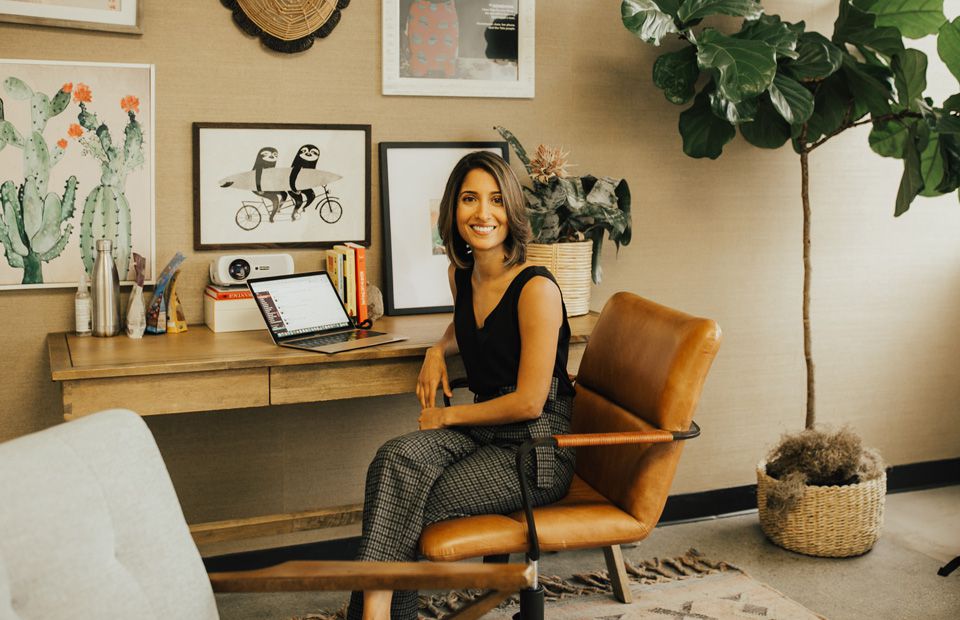
Technology
A Tech Founder on Why Being an Outsider Is a Strength
"I actually think most successful founders are rebels, of a sort. We’re trying to do new things and take on entrenched systems or ways of thinking. What makes me and our company different is that we’re outsiders."
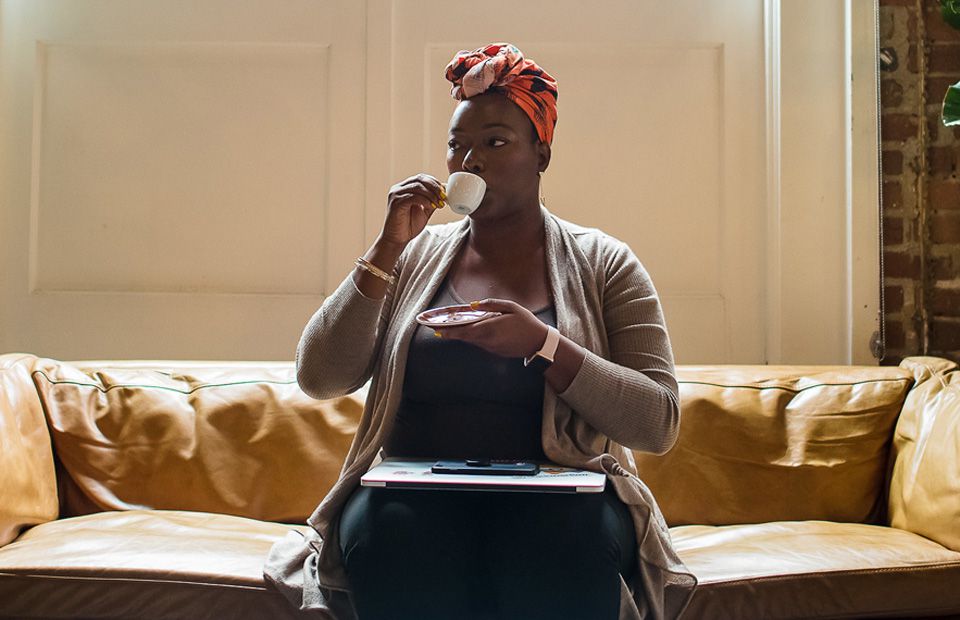
Technology
Omoju Miller—Tech Veteran, Leader, and Volunteer Advisor to the Obama Administration—on The Crucial Role of Creativity in the Tech Industry
"If you are in an environment where you feel marginalized, leave. Don’t try to change it. Go and look for a place that sees you and lets you be you."
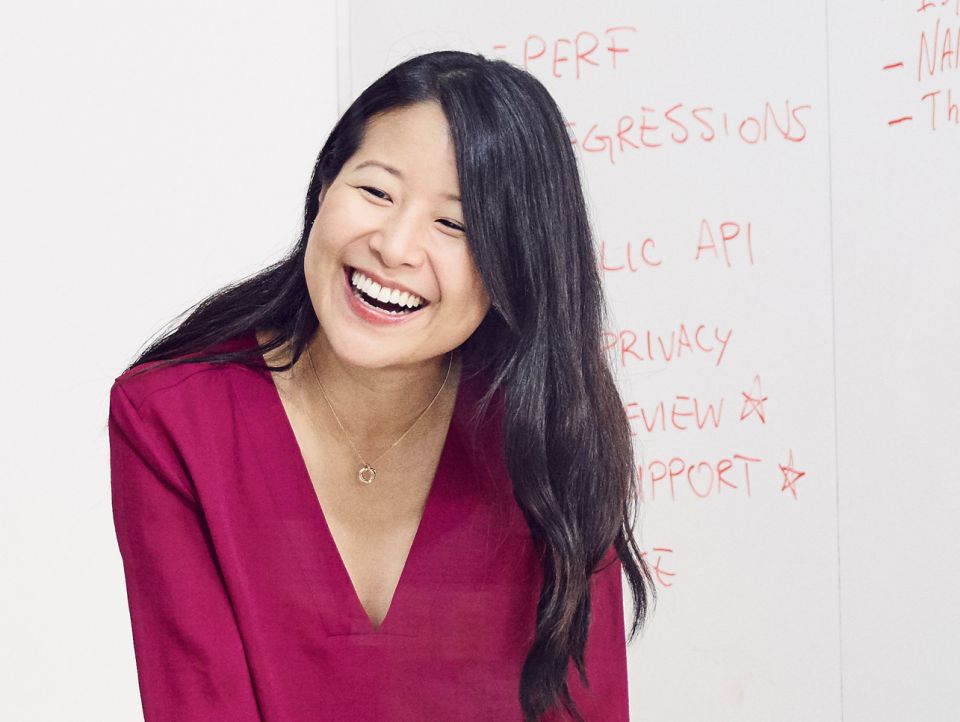
Technology
Sharing Stories as a Software Engineer
We sat down with Apple software engineer Emilie to learn about her day-to-day working at Apple along with what it takes to run the perfect meeting and her favorite ways to unwind.
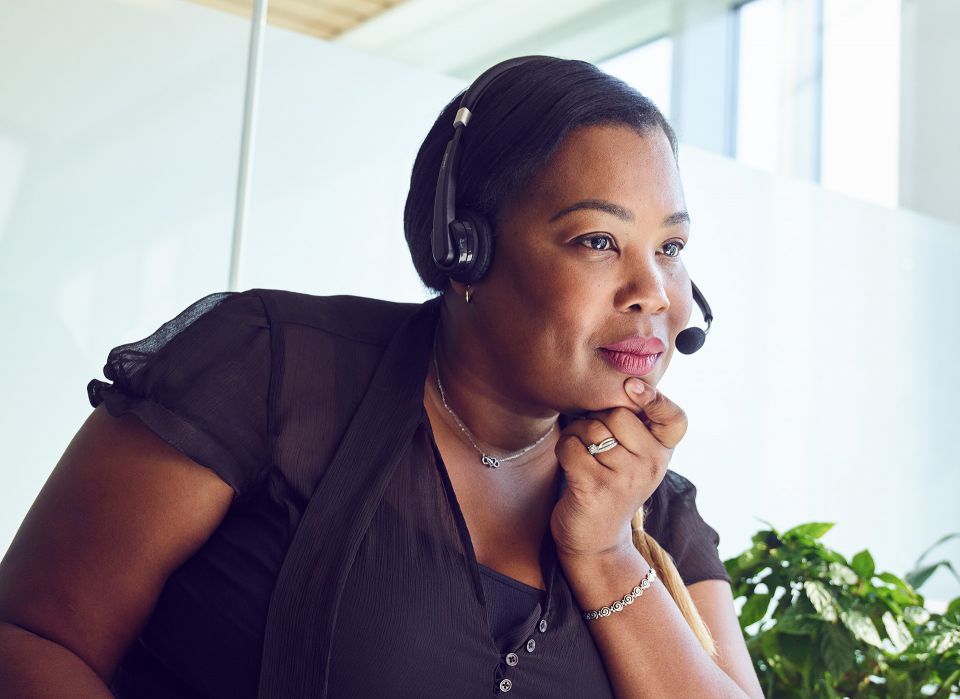
Technology
Creating Impact with Apple
We sat down with Apple's Senior Developer Partner Relations Advisor, Cris, to learn about what it takes to create a lasting impact within a large company. She shares a typical day in the life, her favorite book recommendations, and her top four tips to running a meeting.
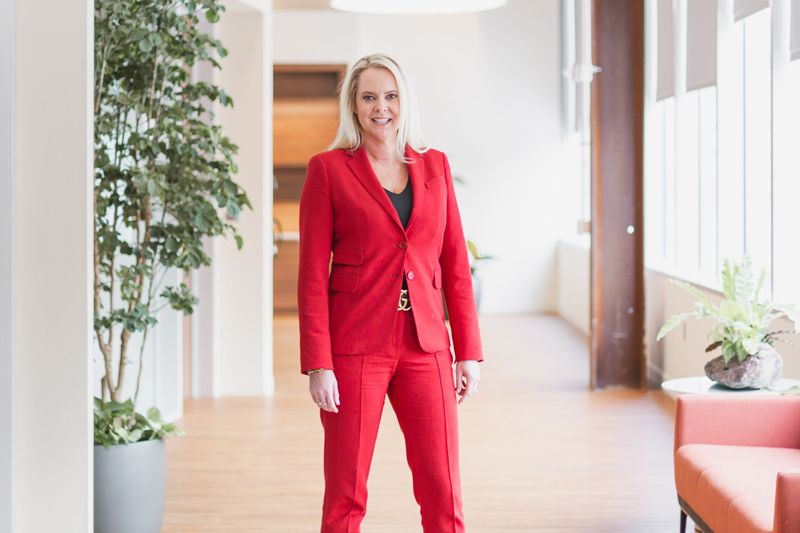
Technology
Salesforce’s Senior Vice President of Sales on Unconscious Bias, Failure, and Innovative Leadership
"Do not be afraid to fail, just bring your best self to the table."
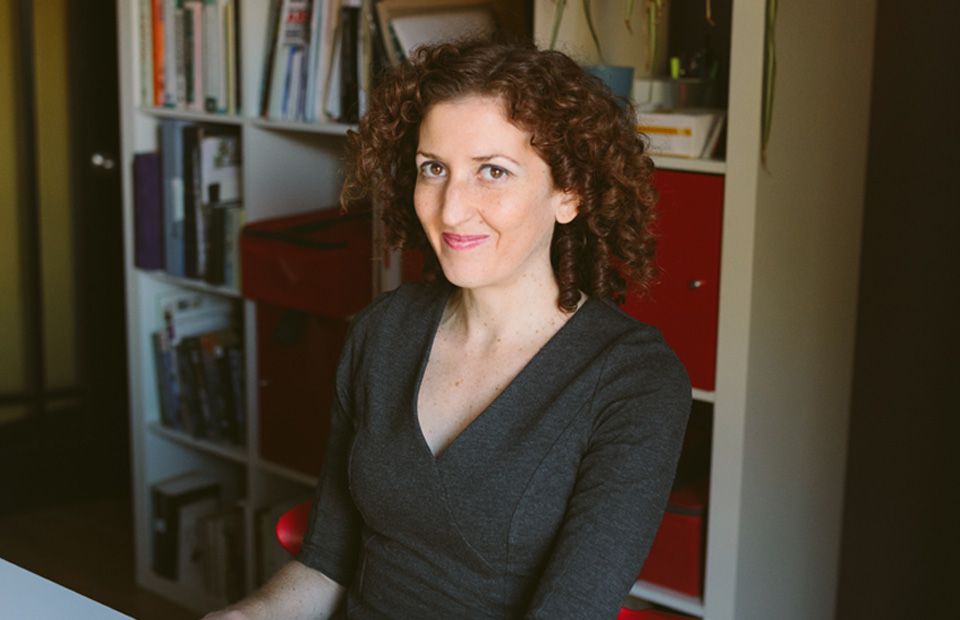
Technology
A Director of Engineering on Tech + Leadership
"I don’t believe in 'having it all'. If you spend more time on one thing, then you spend less time on another thing. All we can do is make choices on how to spend our time."
Get the Best Career Advice Delivered To Your Inbox
Join our newsletter to stay in the loop.
